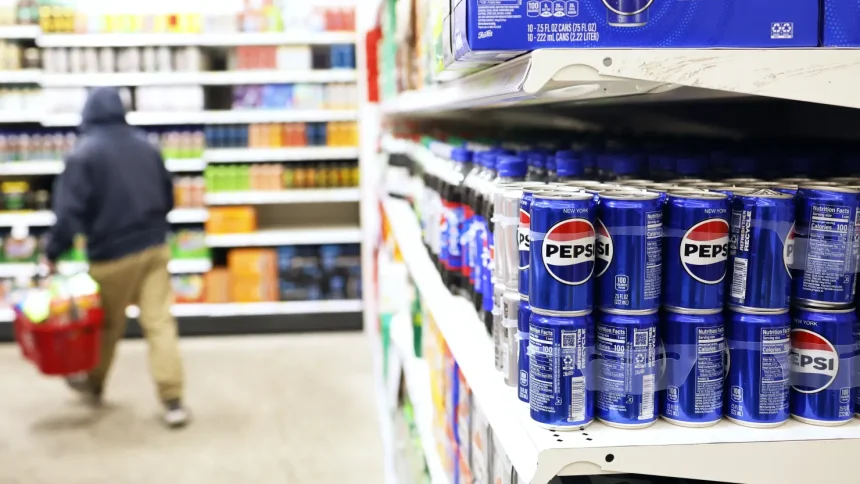The Federal Trade Commission (FTC) has filed a lawsuit against PepsiCo, alleging that the company engaged in illegal price discrimination by favoring one retailer over its competitors. The suit, rooted in the Robinson-Patman Act, accuses PepsiCo of providing Walmart with preferential pricing and promotional benefits, potentially leading to higher costs for other retailers and consumers.
Allegations of Price Discrimination
The FTC claims that PepsiCo violated the Robinson-Patman Act, a 1936 law prohibiting sellers from offering different prices or promotional allowances to competing buyers for the same products. According to the complaint, Pepsi allegedly provided Walmart with promotional payments, advertising support, and other benefits that were not extended to rival retailers.
While the FTC did not name Walmart in its official statement, sources familiar with the matter confirmed the retailer’s involvement to CNBC. The complaint, filed in the Southern District of New York, remains sealed, with portions redacted to protect sensitive information.
PepsiCo’s Denial and Defense
PepsiCo strongly denied the allegations, stating that its practices align with industry norms. “PepsiCo strongly disputes the FTC’s allegations and the partisan manner in which the suit was filed,” the company said in a statement. “We will vigorously present our case in court.”
The company also argued that it does not favor specific customers and maintains consistent practices across its retail partnerships. Walmart declined to comment on the allegations.
Reviving the Robinson-Patman Act
The Robinson-Patman Act, once actively enforced, fell into disuse during the deregulation wave of the 1980s. However, the FTC has recently resumed its focus on this legislation, starting with a lawsuit against Southern Glazer’s, the largest U.S. distributor of wine and spirits, in December 2024.
FTC Chair Lina Khan, who has championed stronger antitrust enforcement during her tenure, emphasized the importance of addressing corporate practices that harm competition and consumers. The PepsiCo lawsuit marks one of the final actions taken under Khan’s leadership before Andrew Ferguson, her Republican successor, takes over. Ferguson dissented against the decision to sue PepsiCo, signaling potential shifts in the FTC’s approach under his tenure.
Potential Impacts on Retail and Consumers
The FTC argues that Pepsi’s alleged price discrimination has hurt competing retailers, forcing them to absorb higher costs or pass them on to consumers. By favoring a single retailer, such practices could distort market competition and limit consumer choice.
“The lawsuit aims to protect competitive fairness,” the FTC stated, adding that lifting the redactions in the complaint could reveal the broader consequences of PepsiCo’s alleged actions.
A Broader Pattern of Corporate Accountability
The lawsuit against PepsiCo comes amid a surge of legal actions from the Biden administration in its final days. Companies such as Capital One, Southwest Airlines, and Elon Musk have also faced scrutiny, reflecting a broader push for corporate accountability.
As the FTC continues its investigation, the case underscores the agency’s commitment to upholding antitrust laws and ensuring fair competition across industries.
The FTC’s lawsuit against PepsiCo highlights the challenges of enforcing price discrimination laws in today’s complex retail landscape. As the case unfolds, its outcome could have significant implications for corporate practices, competition, and consumer pricing. PepsiCo’s defense and the FTC’s findings will likely shape the future of antitrust enforcement in the retail sector.





